- Home
- Paul Christopher
The Second Assassin Page 5
The Second Assassin Read online
Page 5
The aircraft was almost full, not unusual at this time of the year. Of the thirty-five people on the passenger manifest for the early-morning flight most were New Yorkers like Raines. All of them were rich enough to buy their escape from the wet, blustery city, able to afford a week or so on the sunny beaches of the Playa del Este or to lose a few dollars at the racetrack or in the casinos. Among them were a few the nervous young lawyer recognised, either from the newspapers or his own business dealings.
Martha Gellhorn, the writer and Ernest Hemingway’s current mistress, was on board, as were Red Levine and Bo Weinberg, two of Meyer Lansky’s aides, probably on their way to meet the boss at the Hotel Nacional. In the rear compartment, travelling with a few of his junior legmen and his own picnic basket, was Ernest ‘Fatso’ Cuneo, the crumb-covered three-hundred-pound slob who was La Guardia’s famous ‘assistant’ and supposedly some kind of behind-the-scenes heavyweight for the New York Democratic machine. The only thing missing was Walter Winchell, making up stories about the passengers.
Raines looked up at the clock again and shifted in his seat, feeling the aches and pains of all-night travel beginning to catch up with him. He yawned and stretched. It would be over soon enough now. He was booked out on the three p.m. flight that afternoon, which would get him back to Miami in plenty of time to catch the New York–Florida Limited at nine that evening. A couple of stiff belts to bring on a good night’s sleep in the bedroom he’d already booked and he’d be back in Manhattan just after breakfast the following morning, his odious task concluded.
He looked across at the honeymoon couple, still obliviously entwined, feeling the power of his secret. They had no idea who he was, or what business he was about, not the faintest thought that the man across from them was going to change the future of the world, stop the progress of a war yet undeclared, save millions of lives. Like flotsam on the water of a rushing river they were unknowingly being swept along on the swift current of the history he was making right at this moment.
The lawyer smiled to himself, leaned back in his seat and closed his eyes. Heady stuff and true enough, even though he was no more than a pawn in the game that was unfolding. He let out a long breath and flattened his hands on the armrests of his seat, trying to relax. Better to be a pawn than no piece on the board at all. If the game played out, perhaps there was a chance to play the knight in this new world they were inventing.
The flying boat reached the city right on schedule, sloping quickly down through the hot, cloudless sky, following the broad bisecting line of the Canal del Puerto through to the harbour itself, the sharp blade of the hull slicing into the water and sending up a feathering crown of spray, showering the windows on both sides. As the flying boat settled into the water the engines were throttled back and they made a sweeping turn to starboard, bringing them majestically to the landing wharf.
Because he was seated in the forward cabin, Howard Raines was one of the first off the aircraft. With nothing but his briefcase to carry he quickly passed through the minimal customs formalities, made his way through the noisy, crowded, echoing hall and stepped out onto the Alameda de Paula, where he hailed a taxi, his already wrinkled business suit wilting even more in the oppressive humidity and heat.
With a chattering driver at the wheel they hurtled through heavy morning traffic, horn blaring as they raced up the quays until they reached the foot of Calle Obispo, careening through a tight left turn and threading their way into the confines of the narrow street that ran behind the Palacio de Los Capitanes Generales – the massive grey stone building that housed Havana’s City Hall. Less than a minute later they reached the intersection of Calle Mercaderes and the taxi came to a jolting stop in front of the five-storey red-brick pile that was the Hotel Ambos Mundos.
The driver called out a fare in pesos that Raines couldn’t calculate so he gave the man a handful of American pocket change, which seemed to please him well enough. The lawyer stepped out of the car and even before he’d fully closed the rear door the car was already driving away, probably racing back to the Pan American docks to catch another fare.
Hefting the briefcase, Raines stepped into the small, dark lobby and approached the front desk. To his left he could see through an archway into what appeared to be a dimly lit bar and on his right there was a split stairway leading upward with the wrought-iron open shaft and cage of an elevator between the two sets of steps. The green-blue carpet under his feet was old and worn and the arrays of potted palms and rubber plants in the corners of the lobby were coated with dust. Above the lawyer’s head a pair of desultory wood-vaned fans stirred the languid air, wobbling slightly with each wickering turn.
Following the instructions he’d been given before leaving New York, Raines approached the man behind the reception counter and asked for Senor Delmonico’s room. As expected the man behind the counter asked Raines to identify himself, which he did with one of the firm’s engraved business cards. The hotel clerk then unlocked a drawer below the counter and handed the lawyer an envelope. Tearing it open Raines found a room key with an oval metal tag stamped with the number 503 and a brief printed note, unsigned:
Give him twenty dollars.
It was an absurd amount for such a small service – more than the price of his flight from Miami – but once again Raines followed his instructions to the letter and gave the clerk a well-worn bill from the sheaf of money he’d been given for expenses.
‘Piso cinco,’ said the clerk, indicating it was on the fifth floor as he peered over the counter at the key tag.
‘Muchos gracias,’ Raines answered, stretching his knowledge of Spanish to its limits.
‘De nada.’ The clerk smiled.
Raines dropped the key into the pocket of his jacket, crossed the lobby to the elevator and rode the squeaking, rattling cage up to the fifth floor. He found 503 at the end of a narrow corridor that smelled faintly of cats, used the key and entered the room. It was small, barely twelve feet on a side, filled with a sagging iron bed, a freestanding wardrobe and a washstand fitted with a chipped enamel basin. There was a matching chamber pot under the bed and no sign of an adjoining bathroom.
An inset balcony looked out onto Obispo Street and the soot- and pigeon-stained rear façade of City Hall. The sound of the traffic crowding the narrow street was deafening but with the balcony doors shut the room was like an airless, claustrophobic steam bath. Enduring the noise, Raines sat down on the edge of the bed and waited resolutely, briefcase on his lap and the room key clutched firmly in his right hand like some sort of talisman.
Ten minutes later there was a short knock.
Raines cleared his throat. ‘Enter!’
The door opened and a short, fat man in a poorly cut blue suit stepped into the room. He peered nervously at the lawyer. ‘Senor Delmonico?’
Raines bobbed his head up and down. ‘Yes?’
The fat little man gestured towards the open door behind him. ‘Viene con me, por favor.’
Raines nodded – the man’s meaning was clear. Still gripping the briefcase and the room key, he got to his feet and followed the man out of the room. They rode the elevator silently, then crossed the lobby and stepped out onto the street. There was another taxi parked in front of the main door. The fat man got behind the wheel and Raines climbed into the back. The whole process was becoming tedious but Raines saw its ultimate value. Each step was isolated from the next, thus providing near perfect anonymity. The clerk in the hotel had no connection with the man who’d given the envelope to him and this taxi driver had no connection with the room clerk. There would probably be at least one more of these handoffs before he met the man he’d come to see.
The taxi ride was a brief one, taking the lawyer back to the harbour and depositing him at the steps leading down to the San Francisco docks, directly across the Avenida San Pedro from the ancient bulk of the St Francis of Assisi Monastery. The docks were a labyrinth of narrow wharves and jetties, home to most of the Havana fishing fleet, scores of c
harter boats and dozens of private cruisers.
‘Where do I go now?’ asked Raines, climbing out of the car and reaching for his wallet.
The driver waved away the offer of money. ‘Quédaté,’ the man said, pointing to the ground at Raines’s feet. Stay here. The lawyer nodded and the taxi drove off in a cloud of blue exhaust fumes. Raines stared down at the sea of boats bobbing up and down at their berths. Gulls were wheeling over the fishing trawlers, their skirling calls rising wildly into the air. The whole place reeked of fish. Raines sighed; he was definitely beginning to regret taking on the job at hand, no matter how much grace and favour it earned him with the senior partners at Fallon and McGee. His suit was ruined, probably for good, and standing hatless in the hot sun was making him feel even more nauseous than on the flight from Miami.
A few moments later a dark-haired man wearing grease-stained white ducks and a striped jersey came jogging up the steps and motioned to Raines. ‘Señor Delmonico?’
Sighing again the lawyer nodded at the name and followed the man down the steep flight of steps and through the maze of floating docks until they reached a well-used, broad-beamed Elco cruiser with an upturned nutshell dingy lashed down to her after cabin. The name board on the bow said she was the Spindrift. The paint on the name board looked a lot fresher than the boat itself, the black lettering crisp and shining almost as though it was still wet. Raines was willing to bet that a week ago or less the Spindrift had been called something else.
The man in the stained ducks stepped aside and gestured, inviting Raines on board. The lawyer stepped off the dock while the other man cast off the bow and stern lines, then hopped aboard himself. The wheelhouse and the rear cabin took up most of the deck all the way back to the transom. As the cruiser’s engines fired and they warped away from the dock, Raines had little choice except to duck his head and enter the wheelhouse.
It was surprisingly spacious. The wheel itself was on the port side with a well-worn pilot’s chair behind. To starboard, close by Raines’s left hand, was a broad chart table and behind that was a set of lockers and a narrow berth. A bulkhead door aft led to the rear cabin and another door forward led down to the forward cabin.
For the most part Spindrift looked innocuous enough, a lot like the pleasure boats Raines had been on during occasional weekends with clients in the Hamptons. The sound of the engines vibrating beneath his feet was different, though, deeper and more powerful. Spindrift, if that really was her name, was something more than a rich man’s toy.
The dark-haired man behind the wheel shunted slowly out into the main channel beyond the docks then turned towards the mouth of the long channel, which was bracketed by the Castle of San Salvador de le Punta on the left and the remains of the even older Morro Castle on the right. The pilot pulled back evenly on the twin throttle levers and Spindrift lifted slightly as her speed increased. A few minutes later they reached the castles and headed between their great white stone hulks, then straight out into the darker waters of the open sea.
The man at the wheel continued on his course for another quarter of an hour, the skyline of Havana receding quickly behind them. Then without comment, the pilot dropped a small wooden ring over the upper spoke of the wheel to lock it in place, turned and disappeared into the rear cabin of the boat, closing the bulkhead door behind him and leaving Raines alone in the wheelhouse.
Raines swallowed dryly, wondering just what the hell was going on. For the first time since leaving the hotel room he took his hand away from the briefcase. He stepped away from the chart table and took a step towards the lashed-down wheel. Outside, a brilliant sun was shining down onto a sparkling, inoffensive sea but suddenly the young man felt fear. He was reaching out for the wheel when a careful, vaguely accented voice stopped him.
‘Don’t touch that.’
A man in a dark blue sweater and brown whipcord trousers stood in the open doorway of the forward cabin. He was neither tall nor short, his coal-black hair thinned into a widow’s peak, edged with grey at the temples, his skin pale, almost translucent. He wore blue-tinted steel-rimmed spectacles but the glasses did nothing to soften the cold aspect of his slightly hooded eyes.
His hands were small, the fingers long and delicate, but strong, like those of a pianist, thick tendons knotted across his wrists like twisted metal cable. There was a slightly paler patch of skin on the man’s right cheek in just the place where the buttstock of a rifle would rest. Although Raines had seen no photograph he knew instantly that this was the man who was the subject of the slim file he’d been given to read in New York. This was John Bone.
Raines moved silently back to his position beside the chart table and without another word Bone closed the cabin door and walked to the swivel chair behind the wheel. Leaving Spindrift on her lashed-down course, the man sat down in the pilot’s chair, folded his hands in his lap and waited. His breathing was calm and even and he sat with absolutely no motion, the expression on his face blank.
The lawyer swallowed hard again. Bone’s eyes were like those of a hook-billed shrike as it chose the appropriate thorn to impale its victim on. All of Raines’s senses suddenly took on a terrible intensity and he found himself preternaturally aware of the slapping sound of the waves against Spindrift’s hull and the mottled scatterings of reflected sunlight on the whiteness of the cabin roof above his head. A wooden beam creaked with a sound like small bones snapping and his nose and mouth were full of the smell and taste of salt and iodine from the sea.
Bone spoke at last and the spell was broken. ‘I’ve been informed by a mutual acquaintance that you might have something for me.’
Raines nodded his head. This much he knew about – the mutual friend was Frank Hague, the long-time mayor of Jersey City, a hard-nose Mick sprung out of the pesthole of the Jersey City Horseshoe, close to the Hudson River docks. Publicly Hague was an iron-spined Calvinist who neither smoked nor took strong drink but he took payoffs from both sides of the river, dined regularly with Charlie Yanowski and Eddie Florio, gangster bosses of the longshoreman’s union, and sent Christmas gifts to Longy Zwillman, another big-time hoodlum. According to the rumours Frank Hague had a long arm – long enough to install Mary Teresa Norton as his personal stooge in Congress.
The lawyer snapped open his briefcase and pulled out a thin manila envelope, the gummed flap closed and stamped with a red wax seal. Raines looked back at the closed door to the aft cabin.
‘Don’t worry,’ said Bone. ‘Carlos is very discreet and he speaks almost no English.’
Raines nodded again and handed the envelope across to Bone, who took it from him and stood. ‘I’ll be a minute or two.’
The lawyer smiled nervously. ‘It’s okay to leave the wheel like that?’
Bone glanced out through the front windscreen of the wheelhouse. ‘There’s only the Gulf Stream out there,’ he said, turning back to Raines. ‘We’re not likely to run into anything except one or two of those sharks Mr Hemingway and his friends like to shoot so much.’ With that, he went to the forward cabin, entered it and closed the door behind him, leaving Raines entirely alone with his thoughts of the deep blue sea and sharks.
According to his watch, John Bone was gone for slightly more than seven minutes, not two. When he came back up to the wheelhouse there was no sign of the manila envelope. He sat down in the swivel chair, unlashed the wheel and turned it hard to starboard, taking Spindrift in a broad, lazy turn that eventually pointed them back in the direction they had come.
‘We’re going back,’ said Raines, stating the obvious, not knowing what else to say.
‘Yes,’ Bone answered.
‘You’ve read the contents of the file.’
‘Yes.’
Raines cleared his throat. ‘Are there any questions?’
Bone turned to him. ‘If I did have any questions would you be able to answer them?’
Raines felt his face flush and he made no response, his bluff called. He had no idea what the envelope contained and now thi
s man knew it.
‘They didn’t tell you anything?’ Bone asked.
‘Only to follow the instructions I was given. To contact you in Havana.’
‘Which you did.’
‘Yes. Which I did,’ said Raines, some small bitterness in his voice.
‘Did they give you any other instructions?’
‘They said you might have a reply.’
‘I do, I do. You can tell them that I’m interested but that I’ll need more money. A great deal more. If they wish to discuss the matter they can contact me by placing an advertisement in the classified section of the Havana Post. The advertisement should begin with the words “Dear Uncle Charles” and should include a New York telephone number where they can be contacted, the numbers reversed.’ Bone paused. ‘Do you have that?’
‘Dear Uncle Charles. Reverse the telephone number.’
‘Good,’ said Bone. ‘That’s that then.’ Using his left hand John Bone pushed the throttle levers forward and Spindrift responded, the tone of the engines deepening as her twin propellers dug into the foaming water. Her bow rose, taking them back towards the distant shore. Half an hour later they reached Havana Harbour once again and Bone dropped Howard Raines at Washington Docks. Even before the New York lawyer had reached the top of the stairs and the Avenida San Pedro, Spindrift was putting out to sea again.
Raines took another taxi, this time telling the driver to take him to the Hotel Nacional, the only other address he knew in the city. Using more of his expense money he treated himself to lunch from the lavish terrace buffet, purchased an enormous Romeo y Julietta cigar from the hotel shop and, smoking it, went into the Grand Salon. He ordered a Courvoisier from a sad-eyed young waiter with the name Fidel stitched on the breast of his white jacket, then nursed the brandy and cigar for a leisurely hour watching the ebb and flow of people as they lost small fortunes at the tables, their rich smiles undiminished no matter how much of their money found its way into the croupier’s slot.

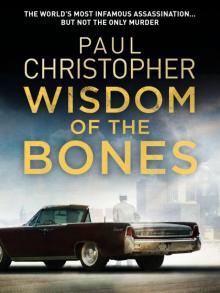 Wisdom of the Bones
Wisdom of the Bones The House of Special Purpose
The House of Special Purpose The Second Assassin
The Second Assassin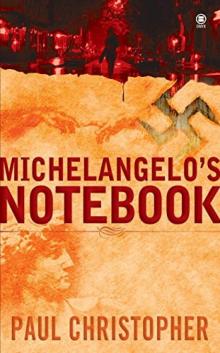 Michelangelo's Notebook
Michelangelo's Notebook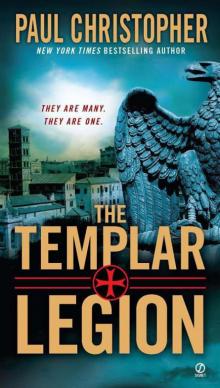 Templar Legion
Templar Legion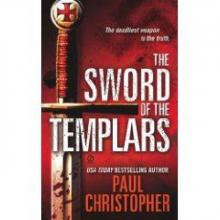 The Sword of the Templars t-1
The Sword of the Templars t-1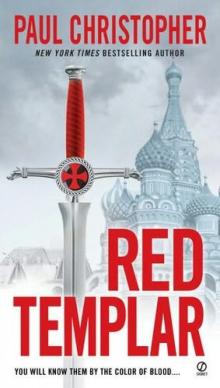 Red Templar
Red Templar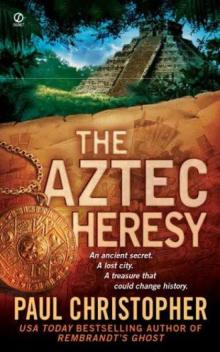 The Aztec Heresy
The Aztec Heresy The Templar Legion
The Templar Legion Rembrandt's Ghost
Rembrandt's Ghost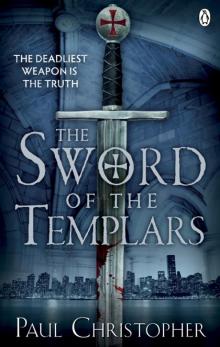 Sword of the Templars
Sword of the Templars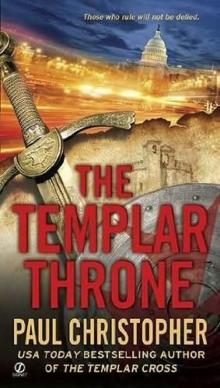 The Templar throne t-3
The Templar throne t-3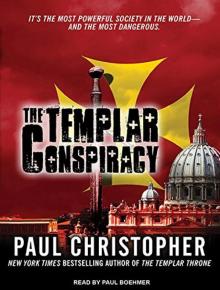 The Templar Conspiracy
The Templar Conspiracy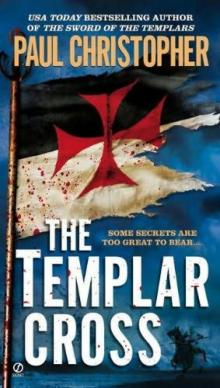 The Templar Cross t-2
The Templar Cross t-2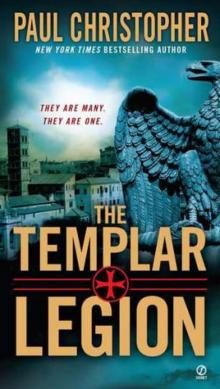 The Templar Legion t-5
The Templar Legion t-5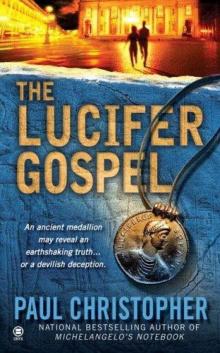 The Lucifer Gospel
The Lucifer Gospel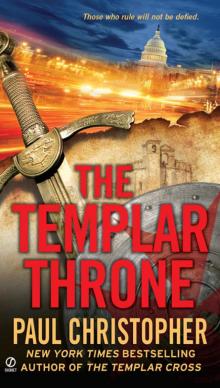 Templar Throne
Templar Throne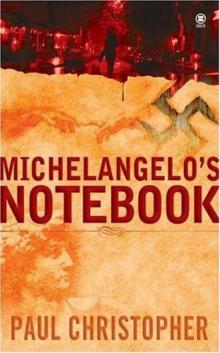 Michelangelo_s Notebook fr-1
Michelangelo_s Notebook fr-1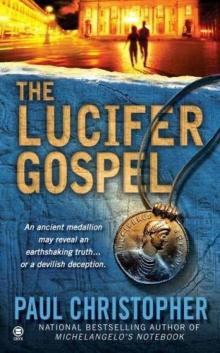 The Lucifer Gospel fr-2
The Lucifer Gospel fr-2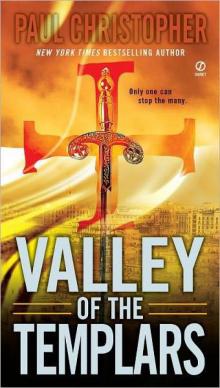 Valley of the Templars ts-7
Valley of the Templars ts-7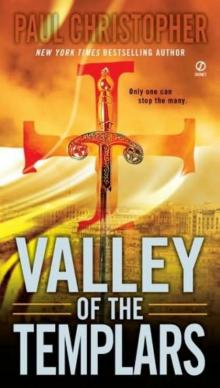 Valley of the Templars
Valley of the Templars Templar Cross
Templar Cross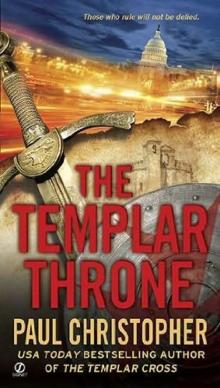 The Templar Throne
The Templar Throne The Templar Cross
The Templar Cross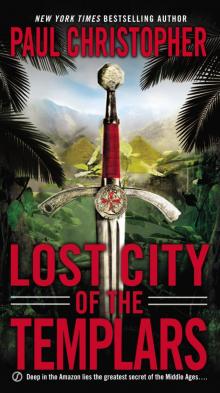 Lost City of the Templars
Lost City of the Templars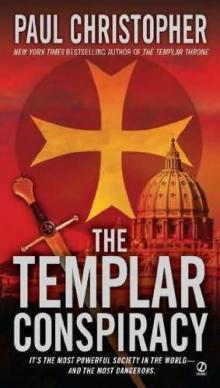 The Templar conspiracy t-4
The Templar conspiracy t-4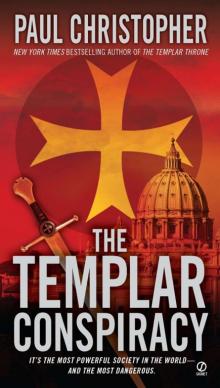 Templar Conspiracy
Templar Conspiracy